2017 | Berlinale Talents
A Question of Community
“Courage: Against All Odds” is the theme of Berlinale Talents, which in 2017 is already in its 15th edition. It in no way shows its age, however, and continues to seek out experimental fields to renew itself. In this interview, Project Manager Christine Tröstrum and Programme Manager Florian Weghorn speak about an analogue virtual reality performance and the courage of young Talents across the world.

Experts of the last years

Anthony Dod Mantle, Christopher Doyle
Berlinale Talents · 2006

Andrzej Wajda
Berlinale Talents · 2005
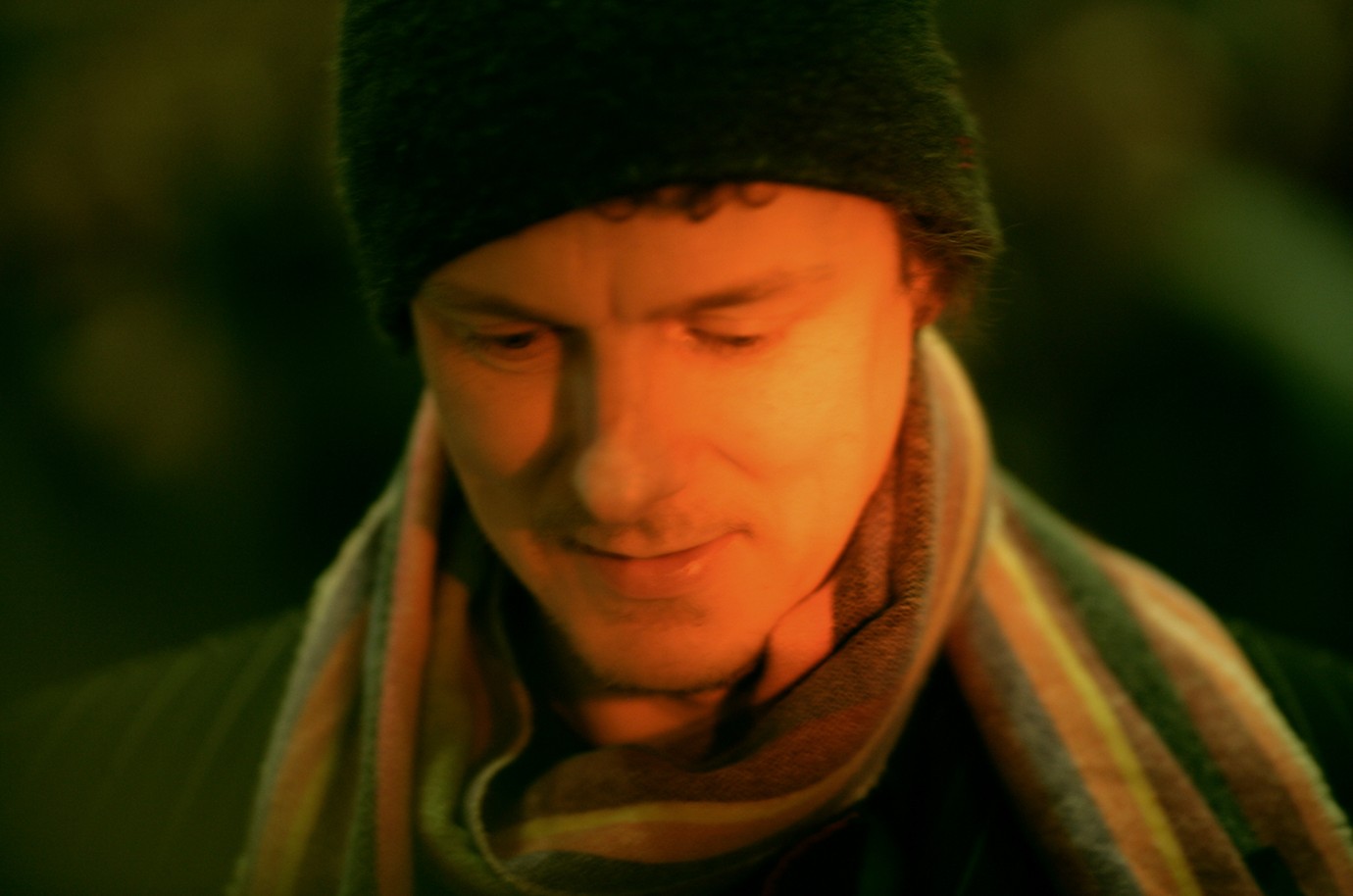
Michel Gondry
Berlinale Talents · 2006
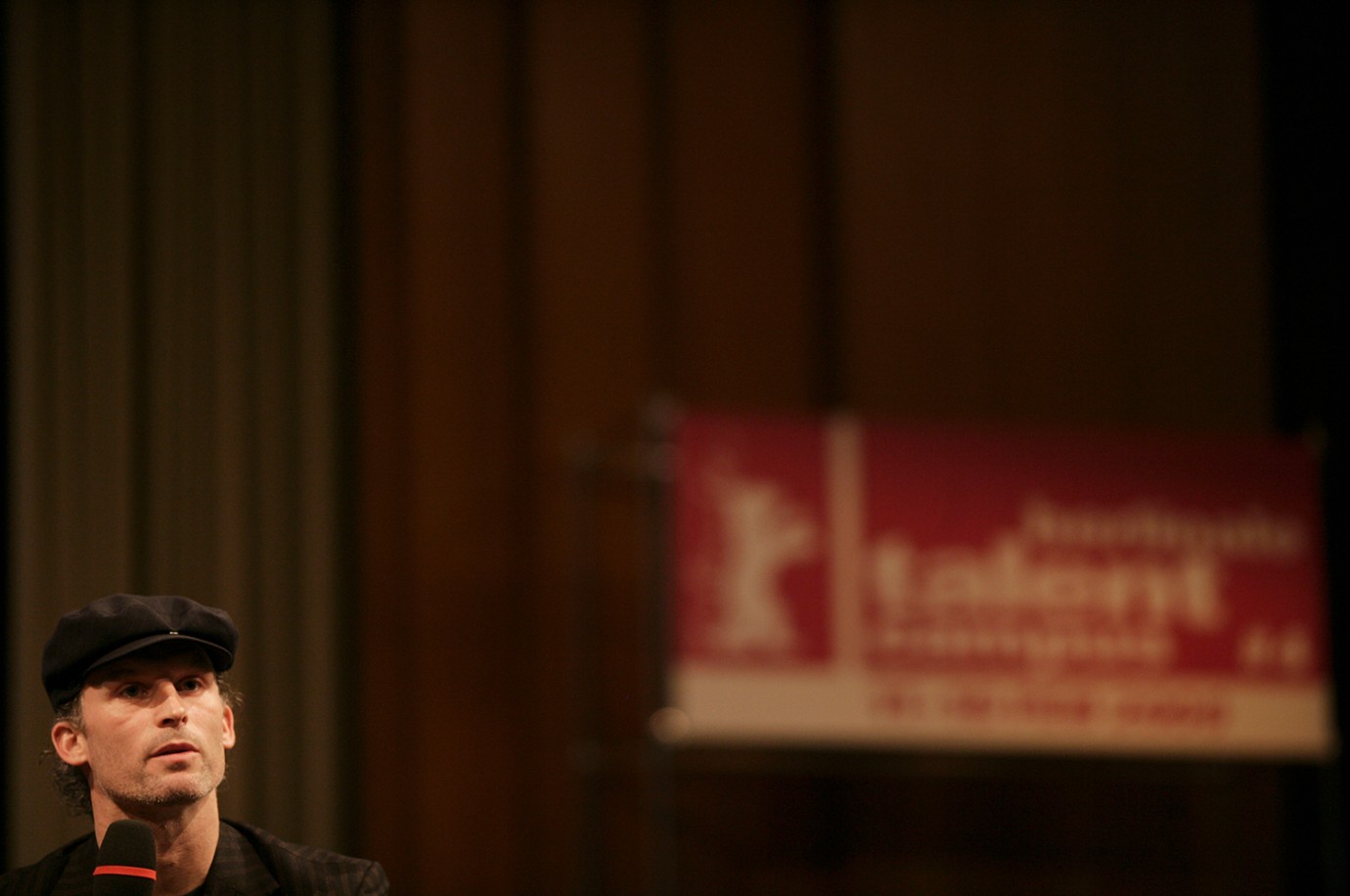
Matthew Barney
Berlinale Talents · 2006
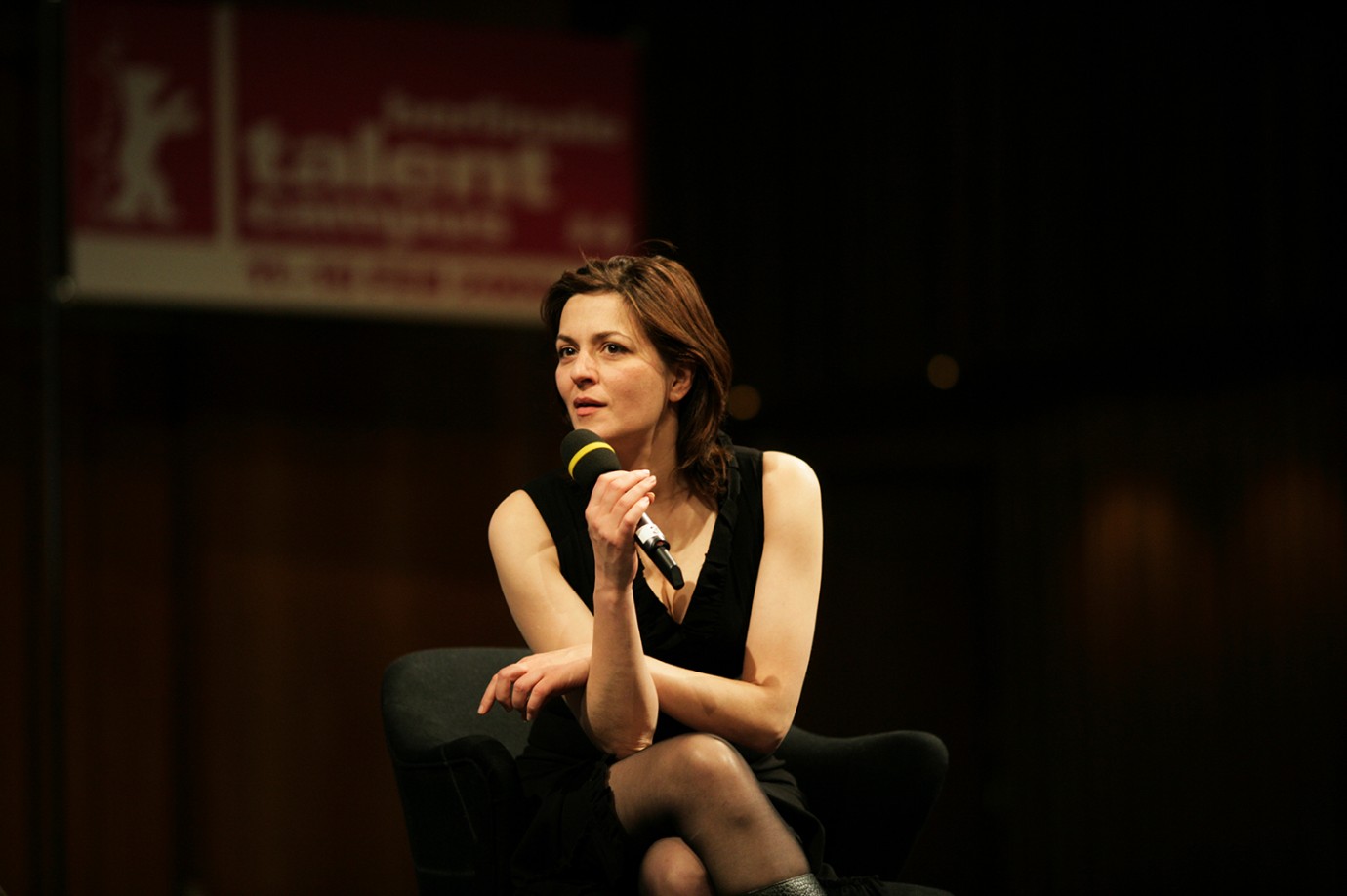
Martina Gedeck
Berlinale Talents · 2006
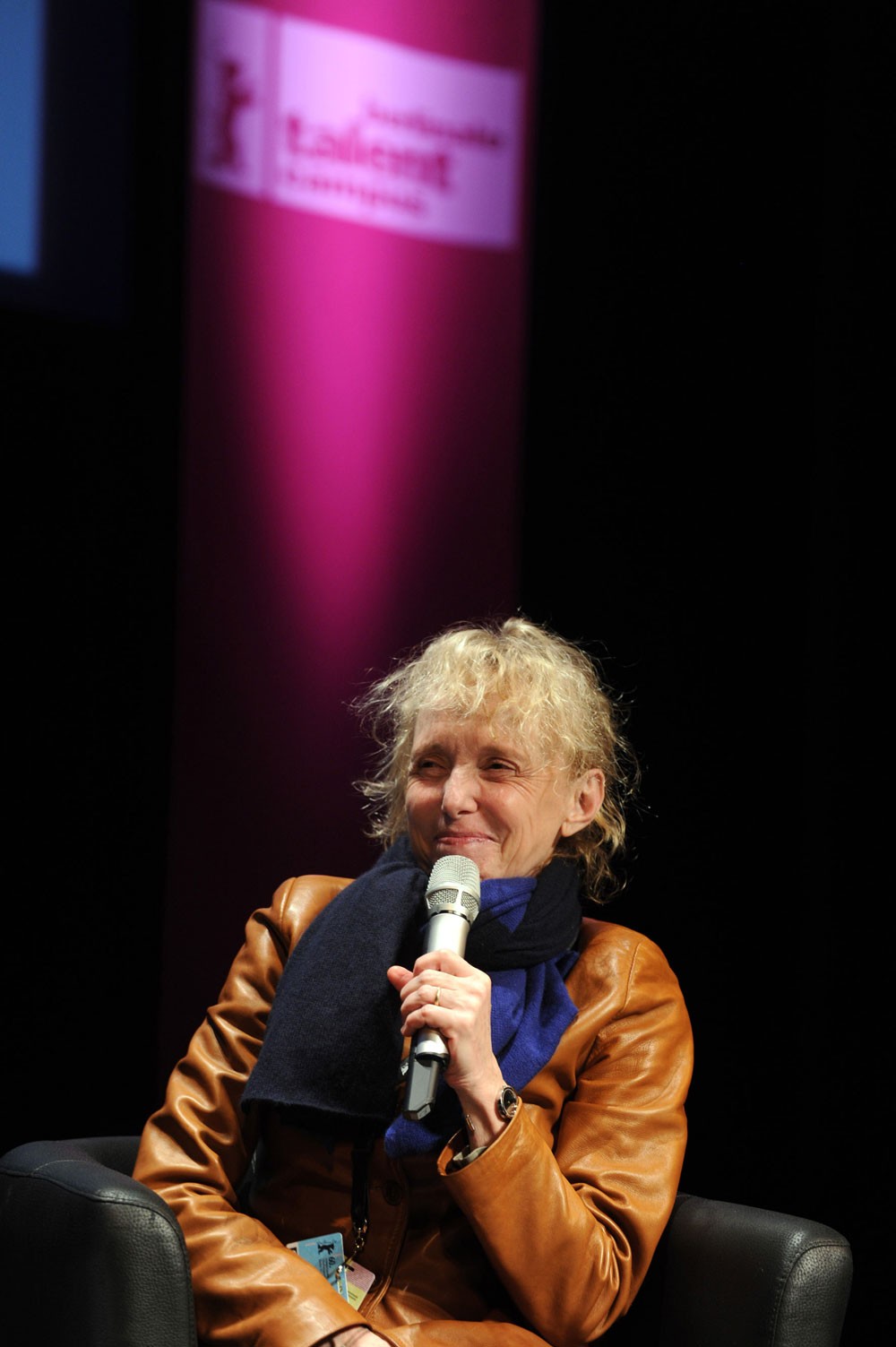
Claire Denis
"In the limelight": French director and screenwriter Claire Denis (Trouble Everyday, Chocolat) gave Talents personal insight into her work.
Berlinale Talent Campus · Feb 15, 2010
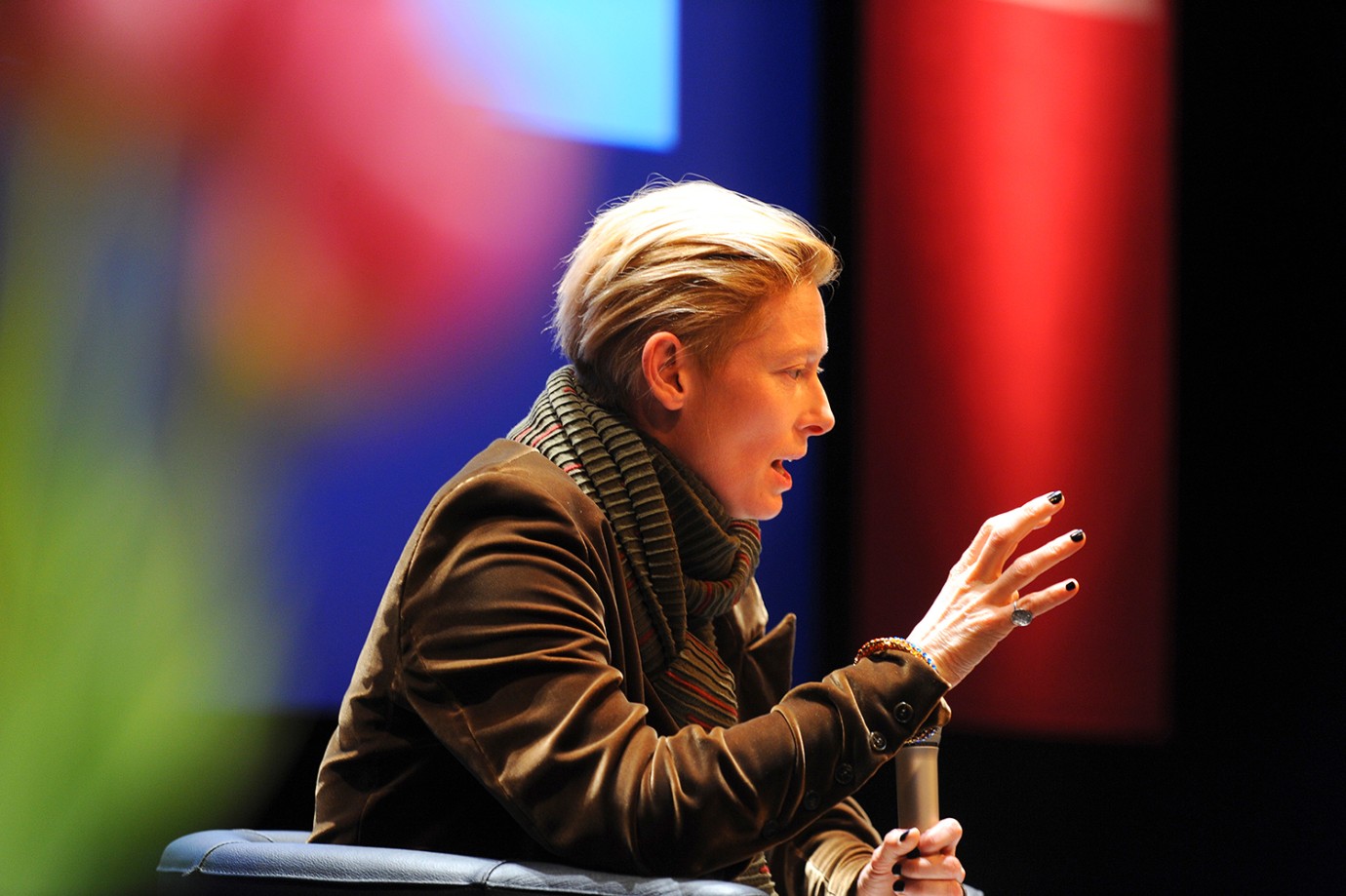
Tilda Swinton
Berlinale Talents · 2009

Mike Leigh
Berlinale Talents · 2008

Peter Sellars
Berlinale Talents · 2006
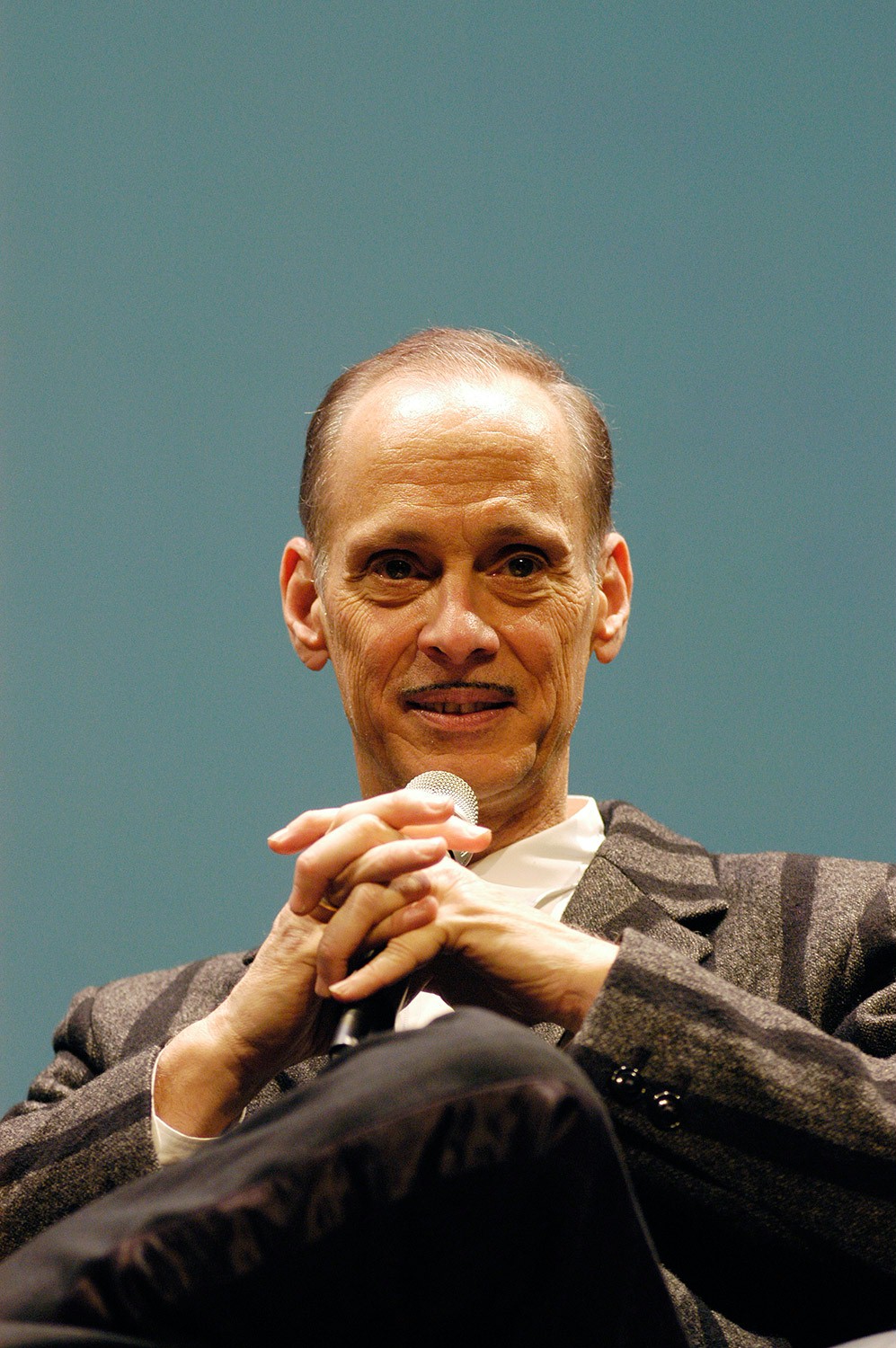
John Waters
At the Berlinale Talent Campus John Waters talked about how it all became what it is. The public talk he was invited to was aptly tilted "The Radical Way to Success".
Berlinale Talent Campus · Berlinale Talent Campus · Feb 13, 2007
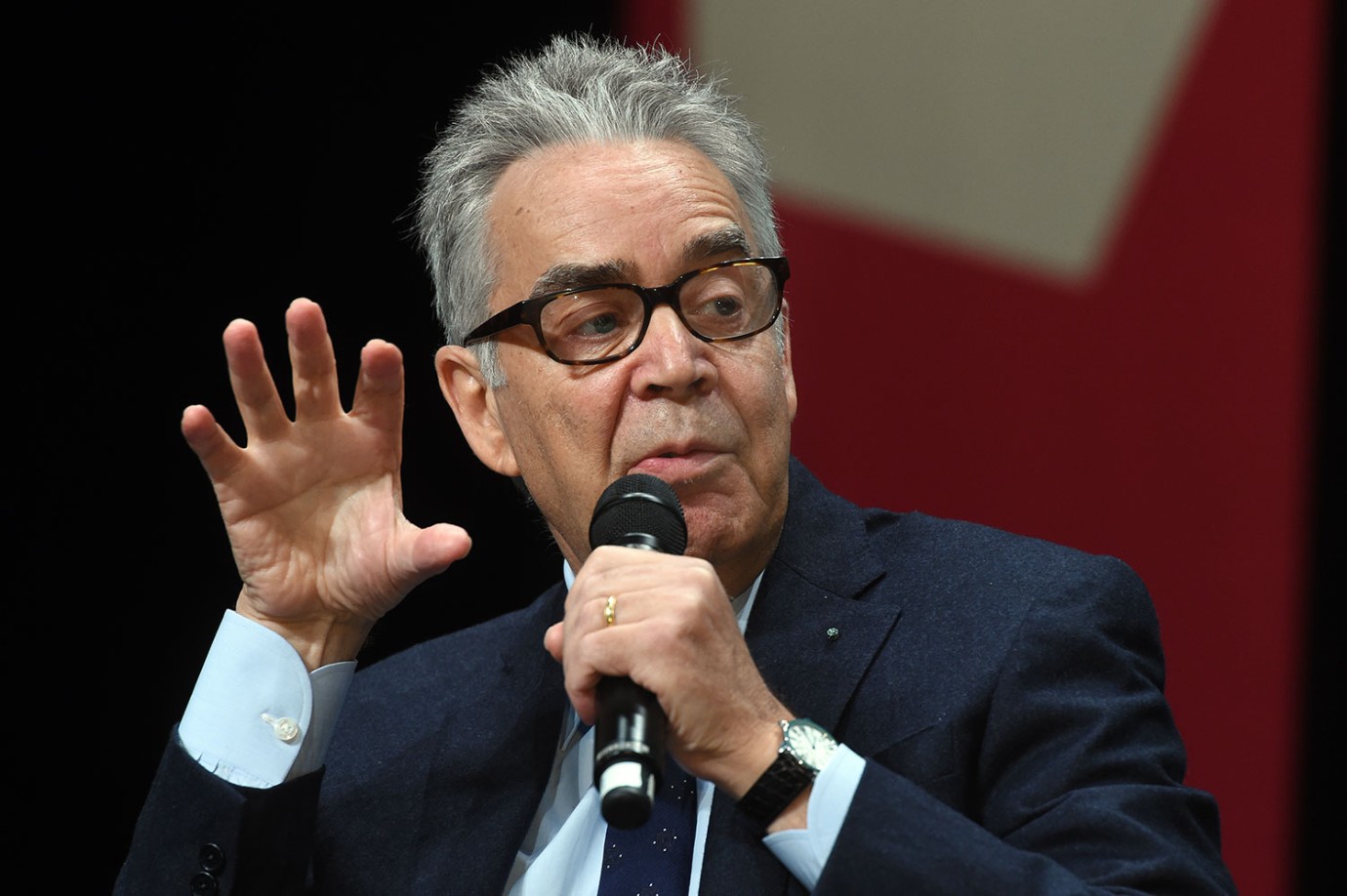
Howard Shore
The Canadian film composer.
Berlinale Talents · Feb 10, 2015
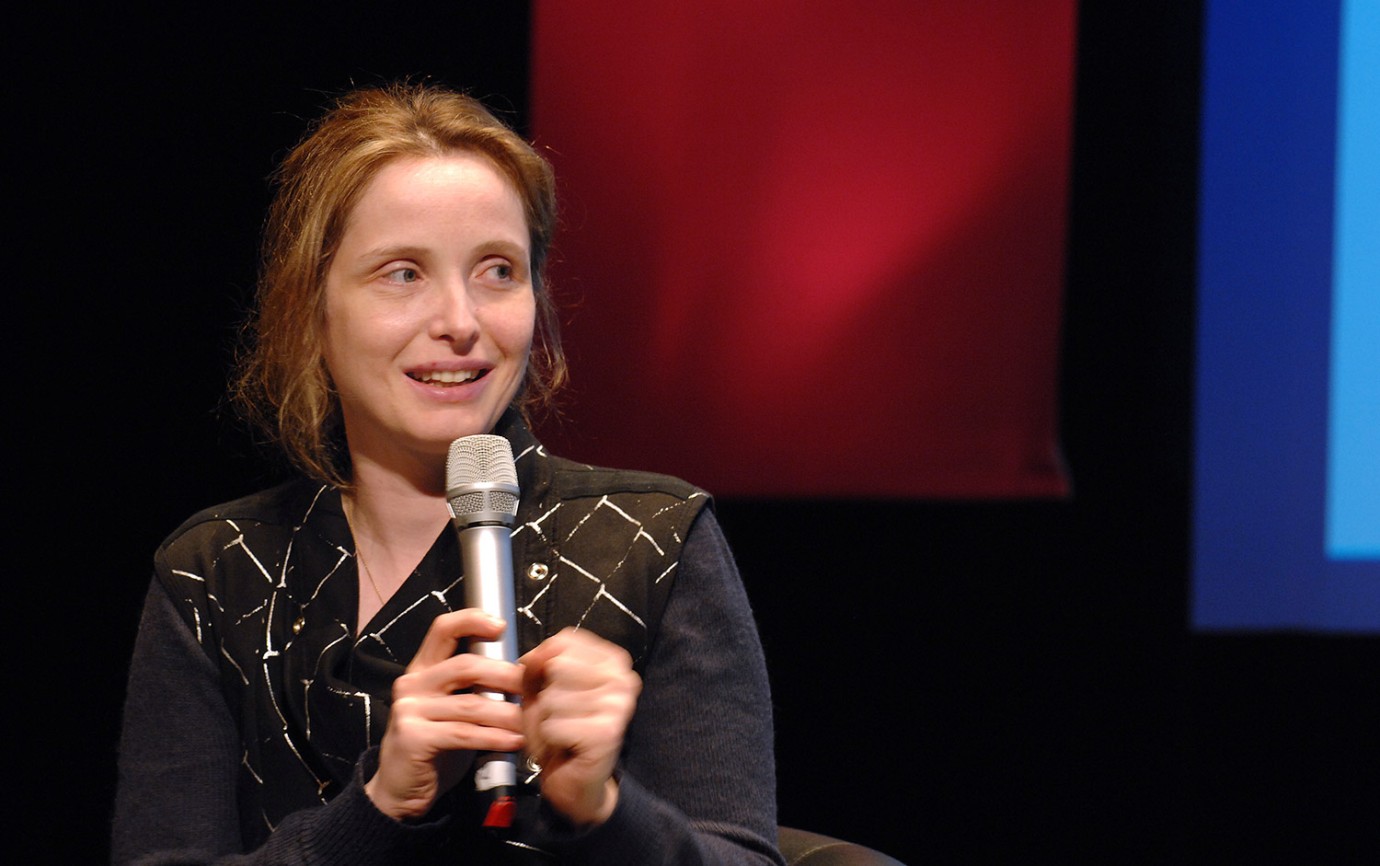
Julie Delpy
Actress Julie Delpy joining in on the "Heroes versus Anti-Heroes" theme.
Berlinale Talent Campus · Feb 11, 2008
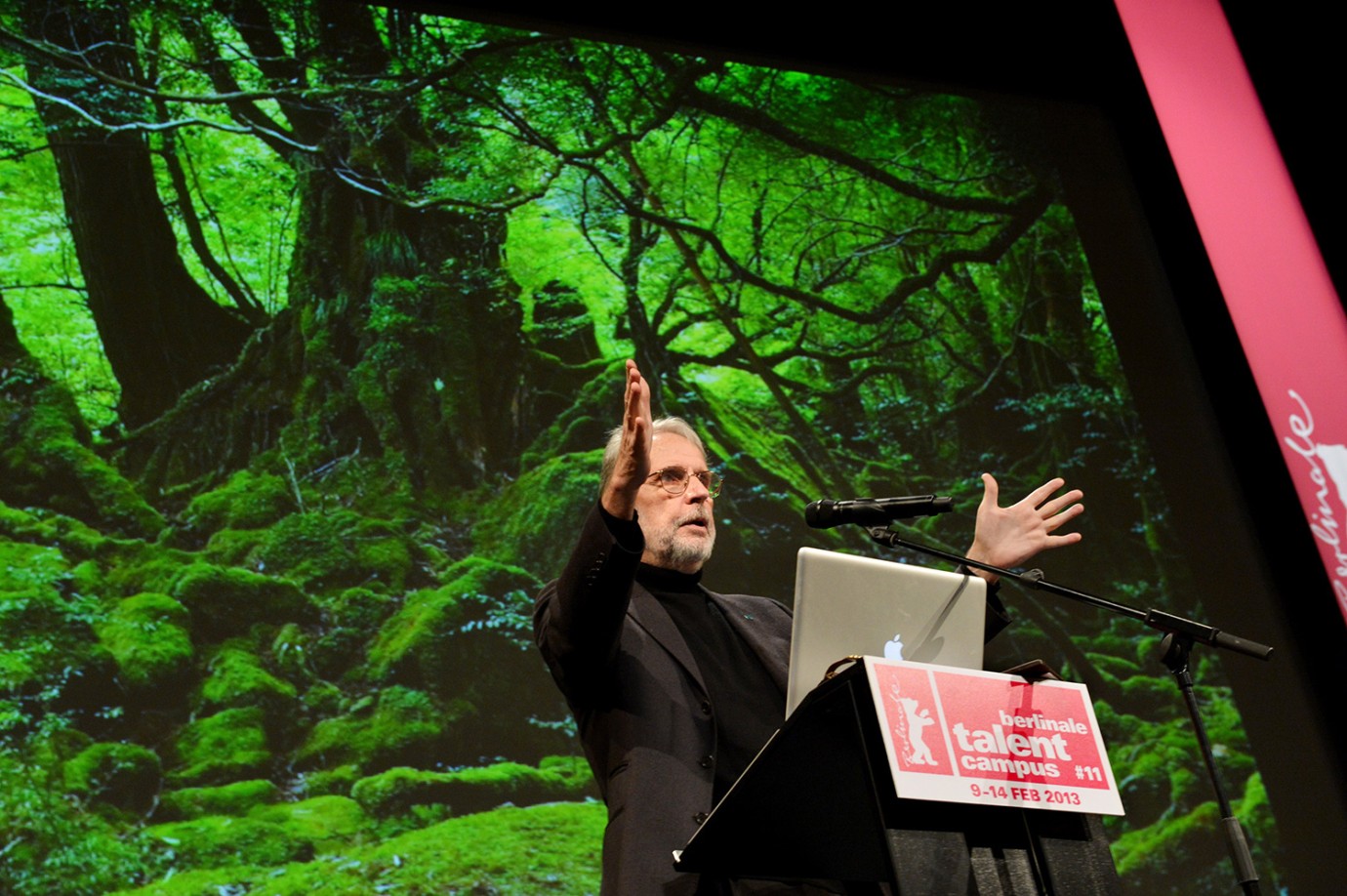
Walter Murch
Master Class: Sound Design and Storytelling
Berlinale Talent Campus · Feb 11, 2013
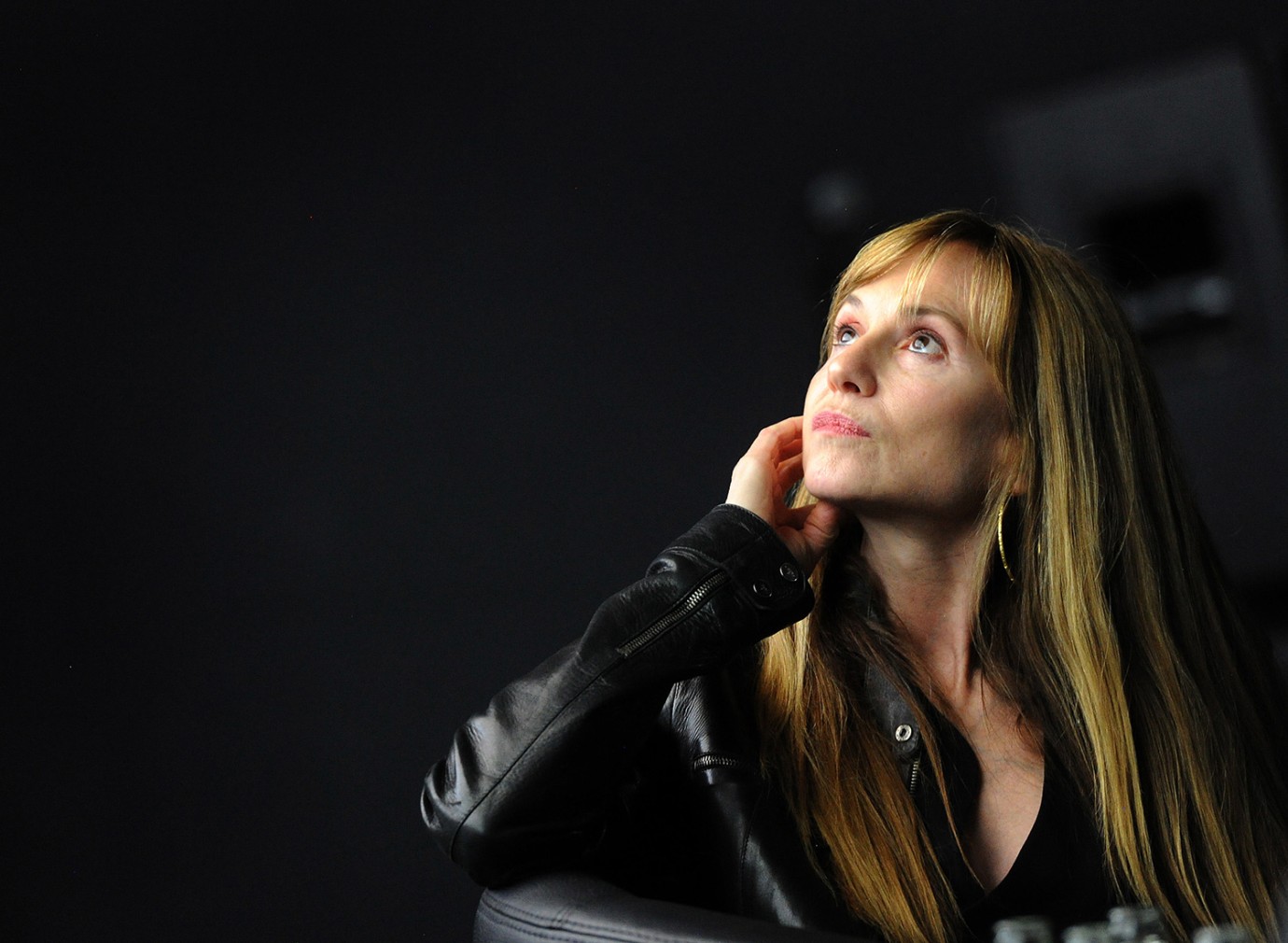
Holly Hunter
How do actors choose their roles and collaborate with directors? The actress discussed the question.
Berlinale Talent Campus · Feb 11, 2013
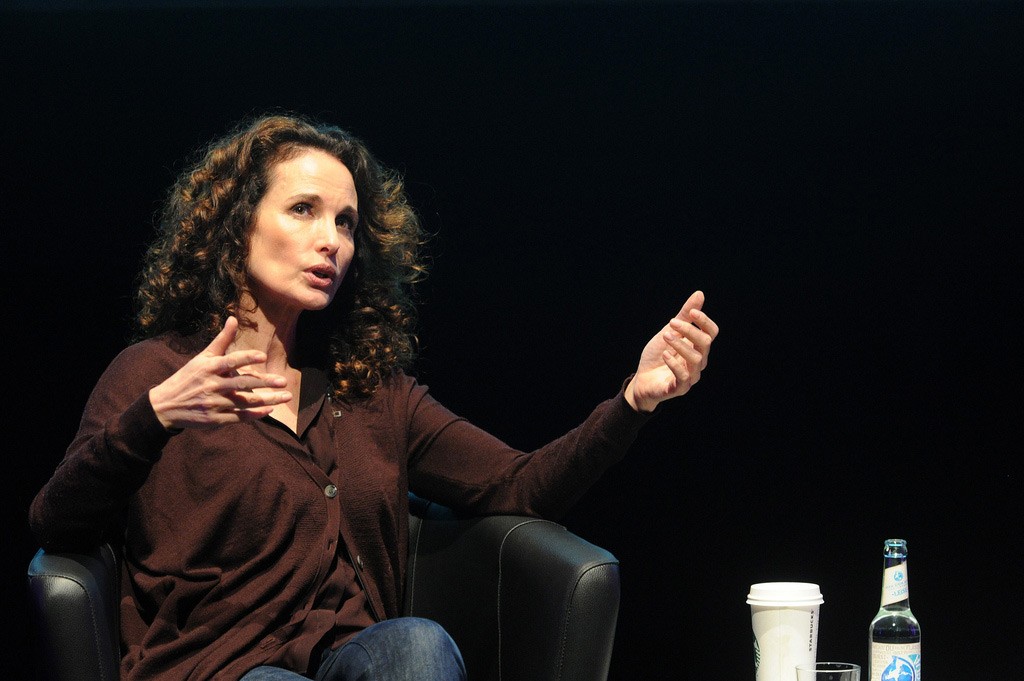
Andie MacDowell
The American actress during “Up Close & Personal”.
Berlinale Talent Campus · Feb 12, 2012
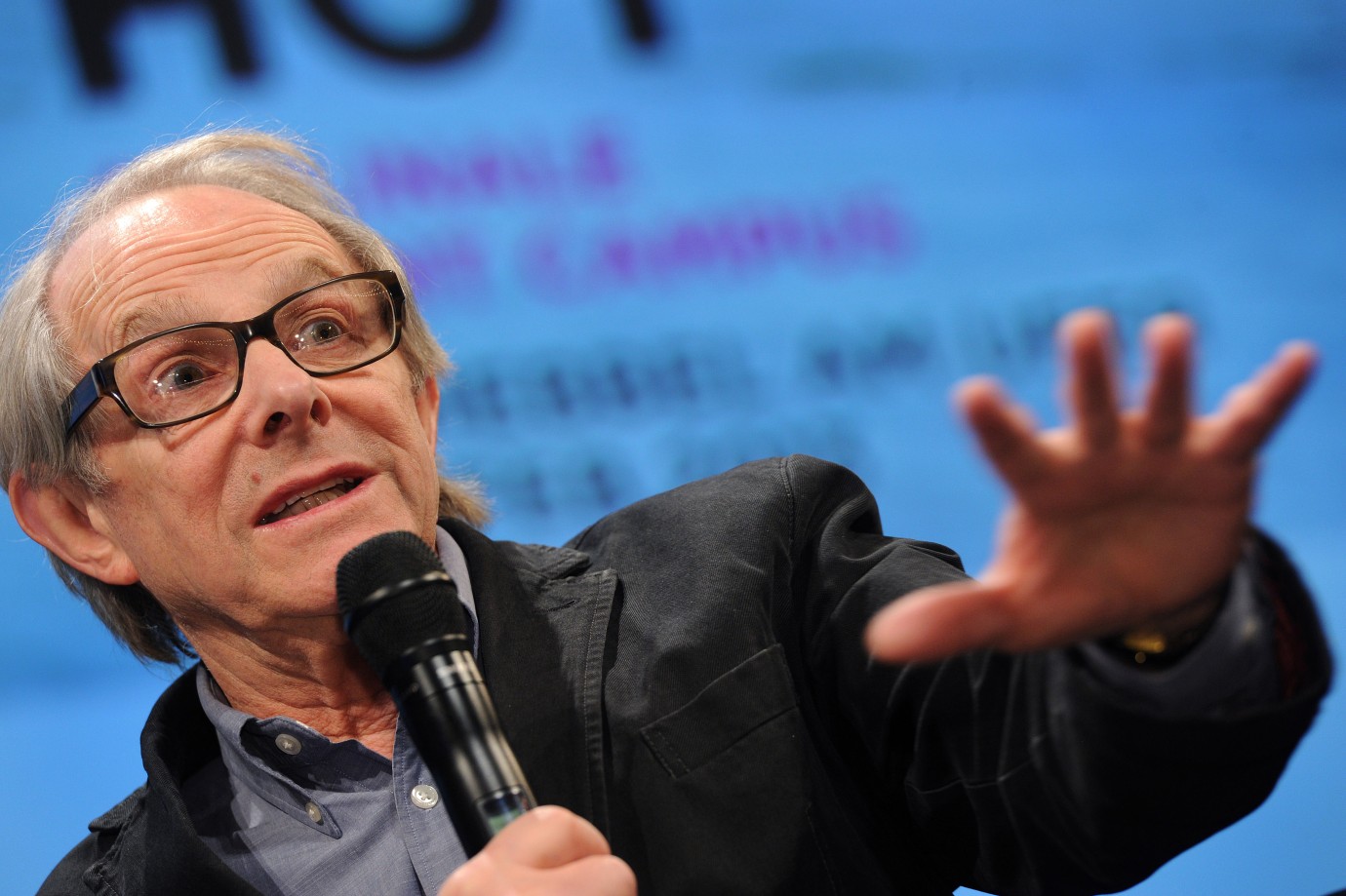
Ken Loach
At the Berlinale Talent Campus 2013
2013

Stephen Frears
Stephen Frears was also present at "The Storytelling Trojka".
Berlinale Talent Campus · Feb 14, 2010
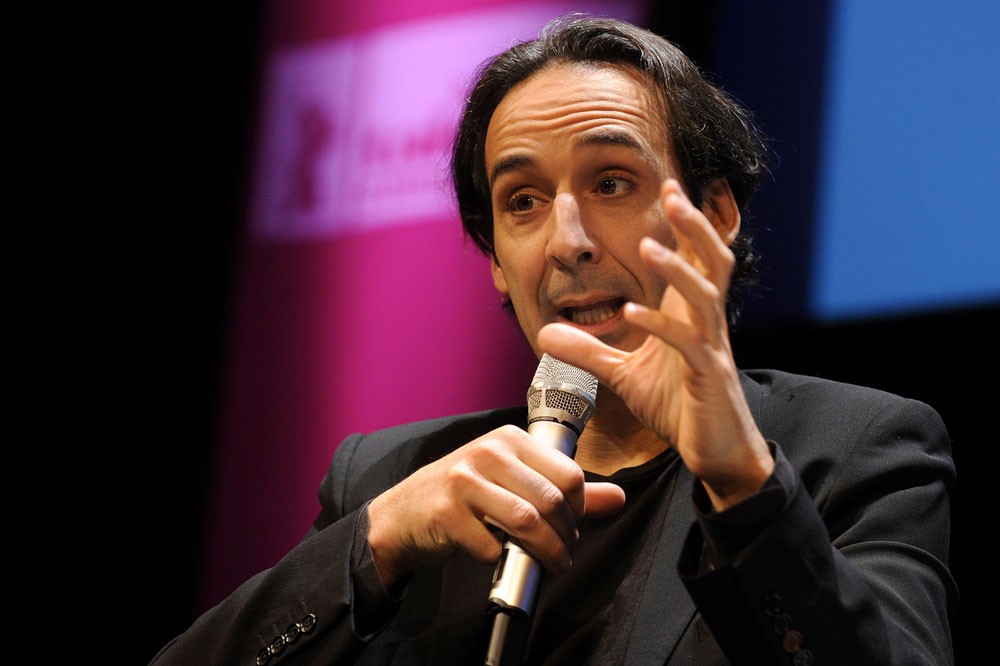
Alexandre Desplat
The filmcomposer led the Master Class "Sublime Sounds, Haunting Scores".
Berlinale Talent Campus · Feb 17, 2010

Henning Mankell
Berlinale Talents · 2011
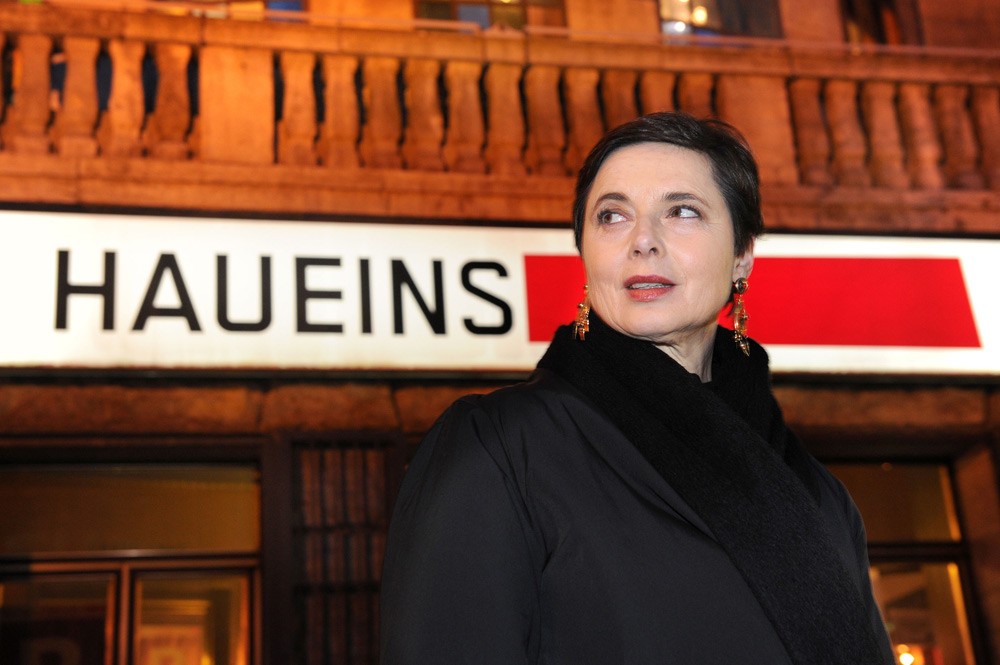
Isabella Rossellini
The President of the International Jury of the Competition 2011 visiting the Campus.
Berlinale Talent Campus · Feb 13, 2011

Hou Hsiao-Hsien
Berlinale Talents · 2012
A large part of Berlinale Talents is open to the public, and interaction with the general public is crucial. What can festival-goers look forward to this year?
Florian Weghorn: Well, things will certainly start with a bang. On Sunday morning, Jury President Paul Verhoeven and jury member Maggie Gyllenhaal discuss courage and challenges in the context of their films and a complex film industry. Questions from the audience are actively welcomed. And then in the afternoon, Christo introduces his working methods and will spend an hour answering questions. He prefers not to have a moderator for this event and instead is ceding control to the audience, which promises to be very exciting.
Christine Tröstrum: We’re making even more room for interaction and want to dissolve more and more the strict demarcation of roles between the audience and panel members. Berlinale Talents has always developed new formats “against all odds.” The governing principles are always the content and the interests of the Talents and visitors.
FW: For example, whoever wants to know what’s behind the current hype about virtual reality might be disappointed by events elsewhere. You don these thick glasses and listen to people saying extremely interesting things but they’re unfortunately rather hard to understand. We believe, in contrast, that the founding principles of VR – trusting in a much more active spectator, the open-ended flow of narrative and so on – have been experimented with for a long time already in performance art and theatre. So instead of just talking, we have invited the Gob Squad performance collective to demonstrate their methods in a practical manner and to interact with the audience. In this way, we’re providing exciting ways to access technical innovations.
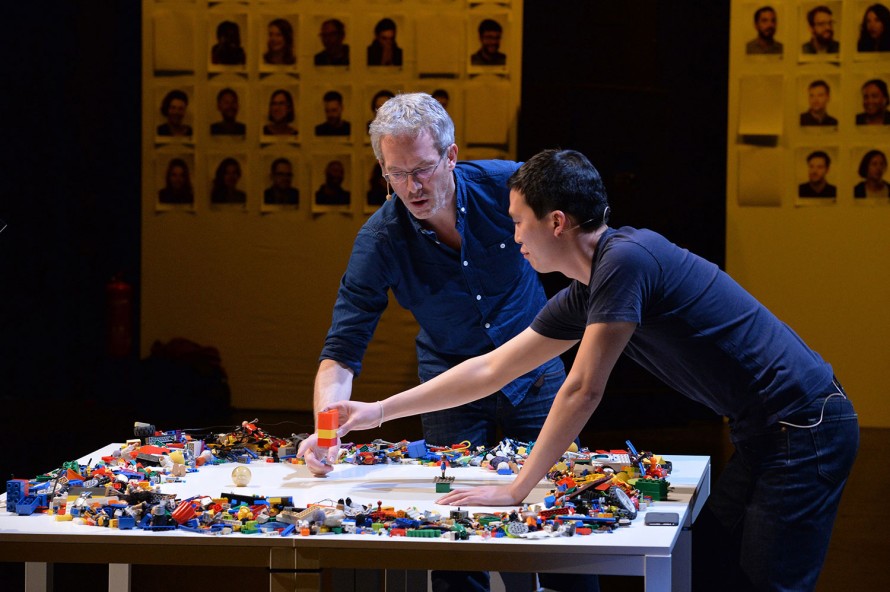
„Looking Ahead: Meet Your Future Audience“ with Paul Tyler - Berlinale Talents 2016
So are there really no classic talks anymore?
FW: Of course, lots of filmmakers from the festival programme such as Agnieszka Holland, Gurinder Chadha, Raoul Peck, Andres Veiel, Olafur Eliasson and Sally Potter will be on stage and talk about their films and art. And naturally the Talents and the audience love to listen to someone like Meryl Streep, for example. But we’re going beyond that and creating new spaces. Workshops will become part of the public programme and we’re combining formats which were strictly separated before. On February 12, for example, Berlinale Talents alumna Ana Lily Amirpour, who had worldwide success with her film A Girl Walks Home Alone at Night and recently presented her new film The Bad Batch in Venice, will bring the playlist of her inspirations live to the stage. We’re interested in what’s behind her films but also in how she deals creatively with references to pop, music and other films . All this will hopefully be revealed in a relaxed and very cool format.
It’s always important for you to take a look behind the scenes of the films too, isn’t it?
FW: We want to complement the festival film programme in terms of content by providing a length and depth which normal Q&As can’t. Another distinctive feature is that we represent all disciplines, not just the director, producer and actors. This can be seen in the “Body Experience: Sounds from Inside” panel. Robert Aiki Aubrey Lowe and Nicolas Becker recently gave aliens voices in Arrival and created the sounds for this remarkable sci-fi film. The audience can delve into an unfamiliar side of a film they might have just seen in the multiplex. At Berlinale Talents, all disciplines are the stars and the film is always seen as a synthesis of the arts.
CT: On February 12, 2017, the Robert Bosch Stiftung and we will celebrate five years of the Film Prize for International Cooperation between Germany and the Arab World. The awards ceremony is also open to the public and will show clips from films which are currently being produced, meaning works-in-progress – so, another glimpse behind the scenes. And that evening the winners of the animation, short and documentary film awards will also be present. It has required courage in many different areas to develop this film award but we have noticed how much cross-communication the Robert Bosch Stiftung has fostered and how closely the many German-Arab teams have grown together during the process.
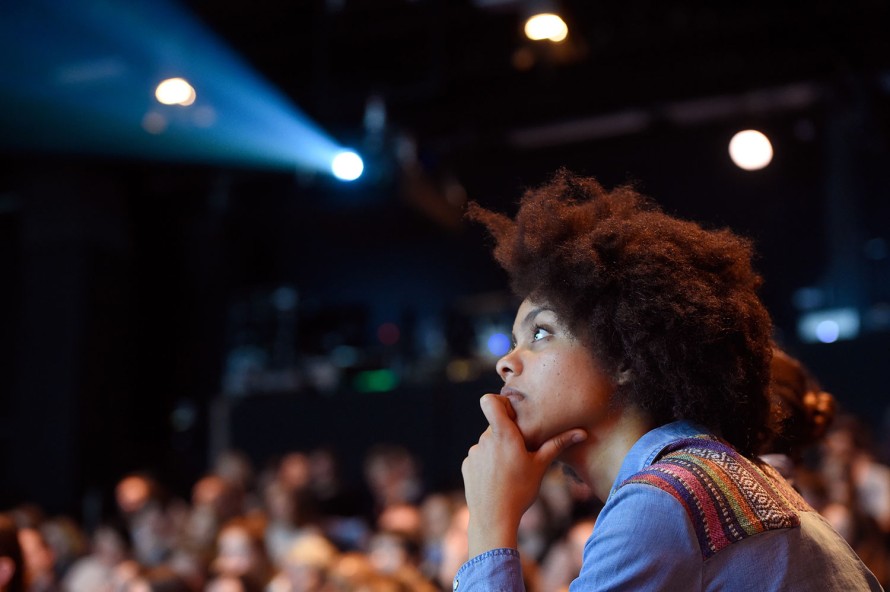
Berlinale Talents 2016
Courage and Optimism
“Courage: Against All Odds” is your theme for 2017. Courage is a must-have in an industry where the risk of failure is so high. Do courage and tenacity pay off?
CT: Yes. An example of this is Palestinian filmmaker Ahmed Saleh who in 2017 submitted a project to the Film Prize of the Robert Bosch Stiftung for the third time. He was turned down twice before but nevertheless gave it another go: that demanded courage and also, of course, perseverance. He was a Talent with us in 2013. His tenacity already paid off during his second attempt because it enabled him to meet German producer Stefan Gieren, and together they worked on the project Ayny – My Second Eye which won the Student Oscar. That is a very nice success story. Courage begins with small steps and is essential to turn dreams and visions into reality. That is the core idea of Berlinale Talents: to always encourage!
One of the slogans on your posters this year is “Why Don't You Get a Real Job?” Haven’t working conditions in general become so extremely precarious during the last 15 years that this question has almost become irrelevant?
FW: That’s often true. Filmmakers are freelancers par excellence, with all the advantages and disadvantages that involves. It’s important to recognise this situation and to scrutinise it, but the Talents have also chosen their careers themselves. Thus they should have a positive answer to the question “Why Don't You Get a Real Job?” Many will say: “This job gives me the freedom to express myself. That is reason enough to contend with the risks.” But, for all our enthusiasm, courage and perseverance cannot replace an income. Whilst you can forego proper payment for the chance of a breakthrough once, we don’t want to encourage people to work long-term in precarious circumstances. It’s better to talk about this issue openly – what we’ll do for example on Tuesday, our “producers day”.
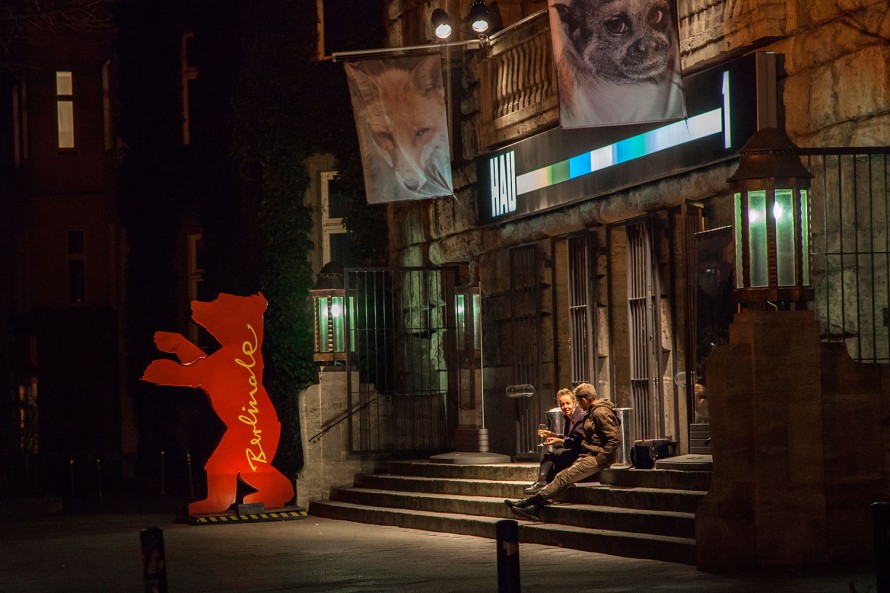
The HAU Hebbel am Ufer 1 - Berlinale Talents 2016
CT: “Why Don't You Get a Real Job?” is one of those typical sentences you hear from your grandmother. Our daily discourse is unfortunately often shaped in very negative ways. In contrast, Berlinale Talents says, “We believe in you”. We accentuate the positive and spread it out into the world. We’re especially delighted, of course, when films by former Talents are screened at the Berlinale. This year there are 93 films in which, believe it or not, 131 alumni were involved. In cooperation with Panorama, Forum, Generation and Berlinale Shorts, we’re screening four films and a short film selection followed by post-screening discussions in the wonderful HAU Hebbel am Ufer theatre.
“Against All Odds” brings to mind romantic heroes who assert themselves against all outside opposition. But it seems to me that the system is risk-averse and seeks to eliminate all possible dangers, including scripts being ever more optimised. In these circumstances, is courage not discouraged?
FW: Of course, sustainable models for showing courage on a daily basis whilst working within the “system” quickly become more of a desire than a reality. In “The Road Not Taken: Funding Courage” we ask film funders to give their concrete ideas about how to support experimentation and art in improved and longer lasting ways. We didn’t have the lonely romantic hero in mind at all. Berlinale Talents practices and proves the opposite. We bring people together who can work “against all odds” in teams. Courage multiplies!
CT: Since 2016, we’ve had a partnership with Kickstarter. This cooperation was an important step to inspire both us and the Talents about alternative routes to film financing. And the courage has been rewarded. For example, with the help of Kickstarter two young producers from Berlin managed to co-finance Bruce LaBruce’s new film The Misandrists which is screening in the 2017 Panorama. It was nail-biting to see whether or not they’d hit their target and it was a learning process, both for Bruce LaBruce and the producers. Film projects have to be presented differently there than with conventional funders and we are very grateful to Kickstarter for their expertise.
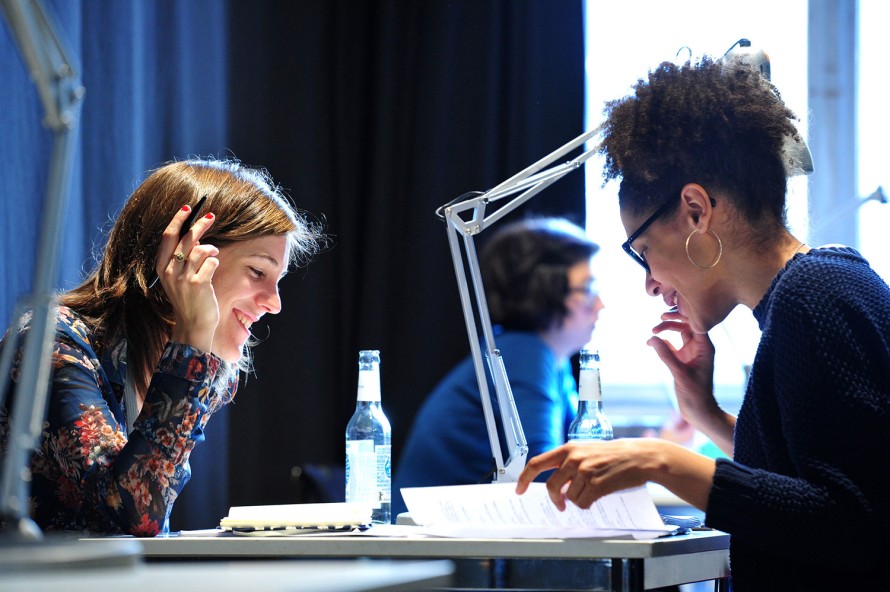
At the 2016 „Script Station“
Community
What motivates the Talents today? Is it fame alone?
FW: Fame is always nice, but what really motivates the Talents is the community. You can see that from the very first second as they come together here in Berlin. And when the participants discover over the course of the days that they have many things in common, that releases an incredible amount of energy. It knocks our socks off every year.
Many renowned players in the film industry stress how important negative experiences have also been for their careers. Is failure a prerequisite for success?
CT: Failure is a part of our daily lives. Some things simply don’t come off. And the more experience I gain, the better and more positively I can deal with the failures. They’re stages of development we have to go through. Perhaps the film financing falls through. Okay, then I’ll find another way. Sometimes only a change in career can help. Many great and well-known directors were only active for 15 years. Filmmaking can sometimes be just one stage in your life – let’s celebrate that or offer reasonable “exit strategies.”
Are there also situations in life when all the courage in the world does not help and you simply have to accept failure?
FW: We don’t invite anyone to Berlin and promise them the moon. We give the Talents the opportunity to become a part of the Berlinale Talents family. We remain in contact throughout the good times and the bad, because the group can always help each other. And hopefully it’s also a small “reality check” where people can review the state of things before they perhaps head down the drains.
In a press release you spoke about moments of courage in the filmmaking process “pushing artistic, political or financial boundaries.” What boundaries still remain today?
CT: In 2017, we have 250 participants from 71 countries, while our alumni network spans over 6,500 Talents from more than 100 countries. The Afghan filmmaker Karima Ishchi remained in Germany after the 2016 edition of Berlinale Talents because she kept hitting walls in her home country. She wasn’t allowed to do anything there, and now, in Berlin, she is enjoying a greater amount of freedom. We should always bear in mind restrictions like these in other countries across the world as well. Even here, we can again see massive efforts to build walls at the moment. We should value and cherish our freedom, and above all our freedom of artistic expression.